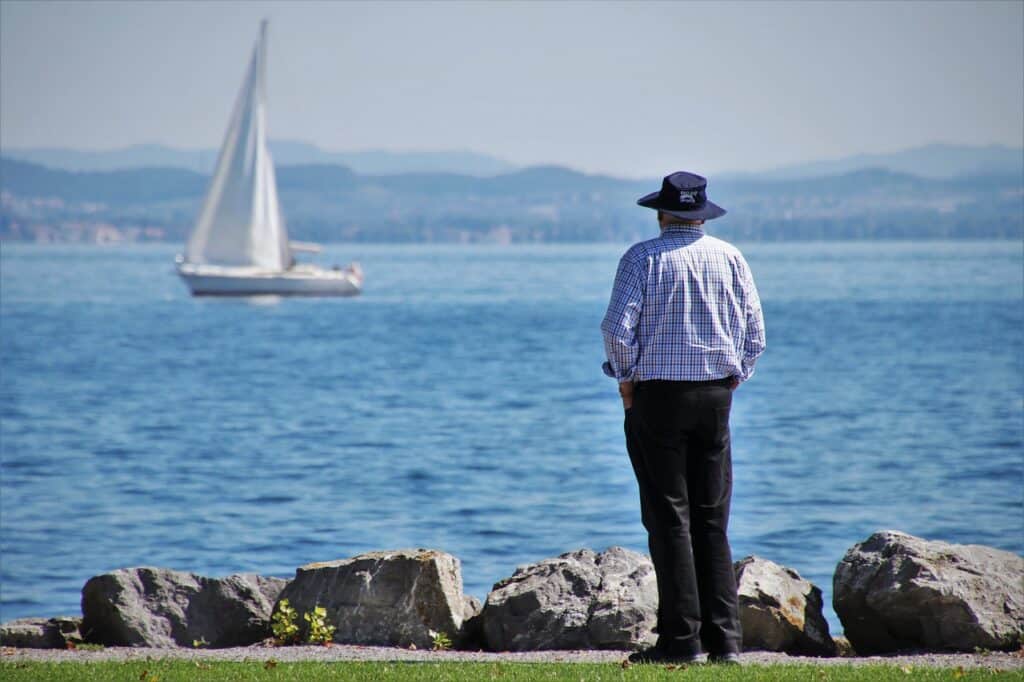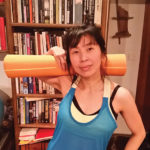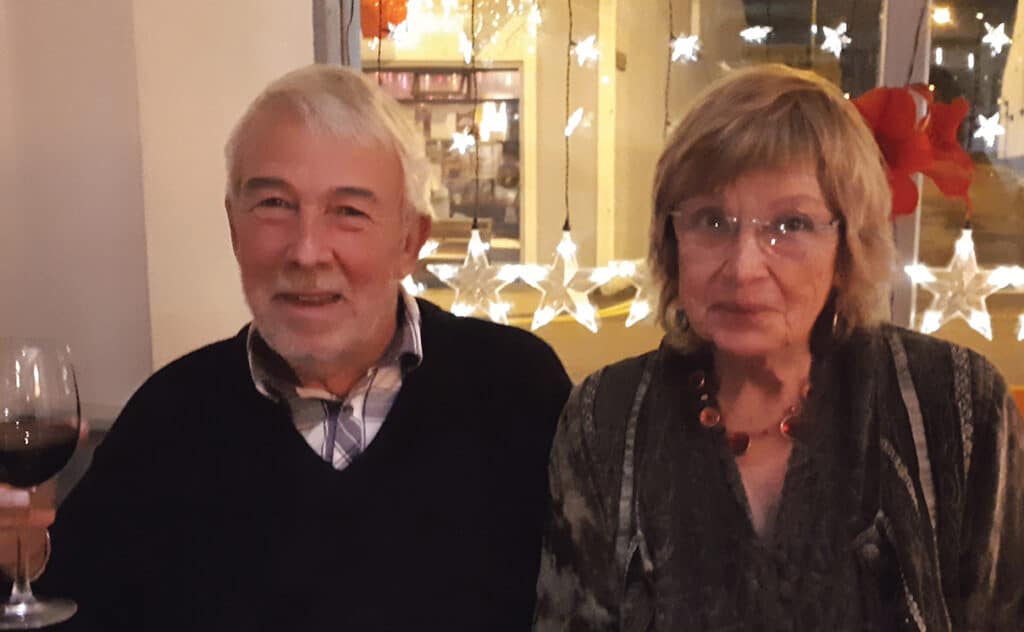
Many older people are feeling isolated and dismissed right now due to the higher percentage of Covid-19 infections and fatalities amongst the oldest members of our population. And the statistics do draw a clear picture – if you have underlying conditions, you’re more likely to get seriously ill from the virus. However, if you don’t have any pre-existing conditions, you are not in the high-risk group due to your age alone.
Whether you’re in the high-risk group or not, precaution and vigilance are two good traits to display now, especially with the winter season arriving, and this is true for everybody, regardless of age. Below I will outline and repeat the WHO (World Health Organisation) recommendations at the end of this month’s column, I will supplement with my personal observations, along with some advice from the Danish Government.
Before I go any further, I need to make a disclaimer, that I am in no way a medical authority, and the observations I make herein are personal or derived from other sources. They do not guarantee you staying safe from Covid-19. But I hope, by reading on, you will feel that you have more tools to navigate life in this current situation.
Official WHO Guidelines:
WHO is recommending the use of face masks (covering of nose and mouth) in situations where people are gathered in closed of spaces like public transport and shops. Masks should be worn so they cover BOTH nose and mouth, as this is the most common places for infections. Try not to touch the mask, but use only the ear-loops when you’re handling it. If you use fabric masks, they should be washed after every use.
Masks protect the people around you foremost and yourself to a lesser degree. However if we all wear masks when we are in closed spaces or places with a lot of people standing close to each other, we protect each other and minimise the risk of spread considerably.
Social Distancing is also recommend by WHO, and is the reason why most shops have markings on the floor, to show were to stand in line, where to walk in/out etc. Normal breathing and talking (with masks) makes this distance safe for aerosols (the little droplets of spit that leave with our breath, when we breathe or talk).
Handwashing – the third of the official recommendations came, as it was discovered the virus could survive on surfaces for a longer period, and get transferred from person to person via touching the same surface (and subsequently touching our face). By washing hands thoroughly and often we minimise chance of infection. In my home, everybody, from the toddler to the adults, wash their hands after entering the front door, no matter where we have been.
Personal Observations:
Going out: Just as you will bring your keys and phone, remember now to ‘bring a mask’, so you have it with you if you end up shopping or stopping by a place with more people. As a mom, I always carry extra tissues, now I’m also stocking up with extra masks and gel.
If you are in the risk group, try – if possible – to do your shopping in the less busy hours of the day. You can always ask your preferred shop when their least busy times are and plan accordingly. You can also choose to have your groceries delivered. Many shops offer online shopping and home delivery. Alternatively ask friends or family to help with shopping. Many people would love to help, and several cities and towns have organised volunteers to help as well. Reach out and ask if shopping is one of the things that is hard to do.
As for medical attention, doctor’s appointments, pharmacy trips and optician visits, call and let them know you are in a high-risk group. Ask to get your appointment scheduled at the first in the morning, or first after lunch, so you avoid sitting in the waiting room with other people. If you are picking stuff up from the pharmacy and are unsure about the safety, call and ask for their least busy times, or ask if they can deliver. And always remember to use your mask.
Last practical observations: Keep your social circle small. (This is also an official recommendation from the Danish government). The more people we surround ourselves with, the higher is the risk of infection. If you have a handful of people you see regularly, speak with them, and see if your attitude to the pandemic aligns. If you’re both being careful, and both keep small social circles, chance of infection will be lower than meeting regularly with someone who doesn’t adhere to the guidelines and keeps a big social circle. It is of course impossible to be 100 per cent risk free, because everyone we come into contact with, has been in contact with other people. However, meeting outside for walks, or a coffee on the bench with a proper distance, is a good way to keep your social life going. As the weather gets worse and outdoor meetings will be more difficult, if/when moving indoors, think about: Proper distance to your friend. Cancel the meeting if you feel the least bit sick, have a cough or runny nose coming on – you can also ask this of your friends (better to be safe than sorry). Air out the room before and after the visit (and preferably during if it’s not too cold). Disinfect the seating area afterwards – we touch more things than we are aware of.
As for your health, remember both your physical and mental health. Just as with the normal flu, you want to be as healthy as possible; a healthy person often gets less sick, than a person who’s immune system is already compromised. (But as you know, there are no guarantees with Covid-19).
However a good health, including mental health, is essential to a good life. The lockdown took a toll on a lot of people, who lost their ways of exercise and daily contact with their social circles. This had an impact on the overall health and quality of life, which many felt as a depressing loss.
So it’s important to actively commit to keeping yourself healthy; Physically and mentally.
How to do that? One way could be to find a friend who will commit to do a longer walk with you one to three times a week. This solution will also work on both objectives. You get exercise several times a week and your mental health will improve due to spending time with a friend.
Another option is to find an activity you like doing, and commit to do this one to three times a week, sun, rain or wind. As you grow accustomed to it, you can either enjoy getting better/ more confident with it, or you can switch up the intensity or duration.
As for joining gyms or clubs – right now, especially coming into the winter – might not be the best time. However if you do wish to pursue some kind of group activity (and I completely understand if you do), use your common sense. Are the classes kept extra small and spaced out? Is the room is aired out and equipment disinfected between classes? Does the place have air-conditioning (how is the filter)? Are outdoor classes possible? Ask before joining, and don’t feel bad for backing out if you decide you’d rather train at home. Your health is your first priority and the thing that will carry you through the season we’re about to enter.
As for your mental health, there are so many supports out there – including West Cork People’s own mindfulness coach – to look into. My most important observation for this area will be to not succumb to fear and anxiety. Be vigilant and take precaution but don’t let the virus cripple your life. We can do this by actively working with our thought patterns. If you’re prone to worries and often spend a lot of time being anxious, you will almost be certain to focus in on every little detail that supports this pattern. However, if you stop yourself from thinking these thoughts and instead re-direct them to think, for example how you can solve going shopping on a Saturday and avoid the crowds, you’ll start to think in solutions and opportunities.
Also most importantly, make sure to remember to spend time with loved ones. Friends and family (and pets). They are the ones who can help us live our best life.
Comments, questions and suggestions are as always welcome at:
taniaskitchenfitness@gmail.com



